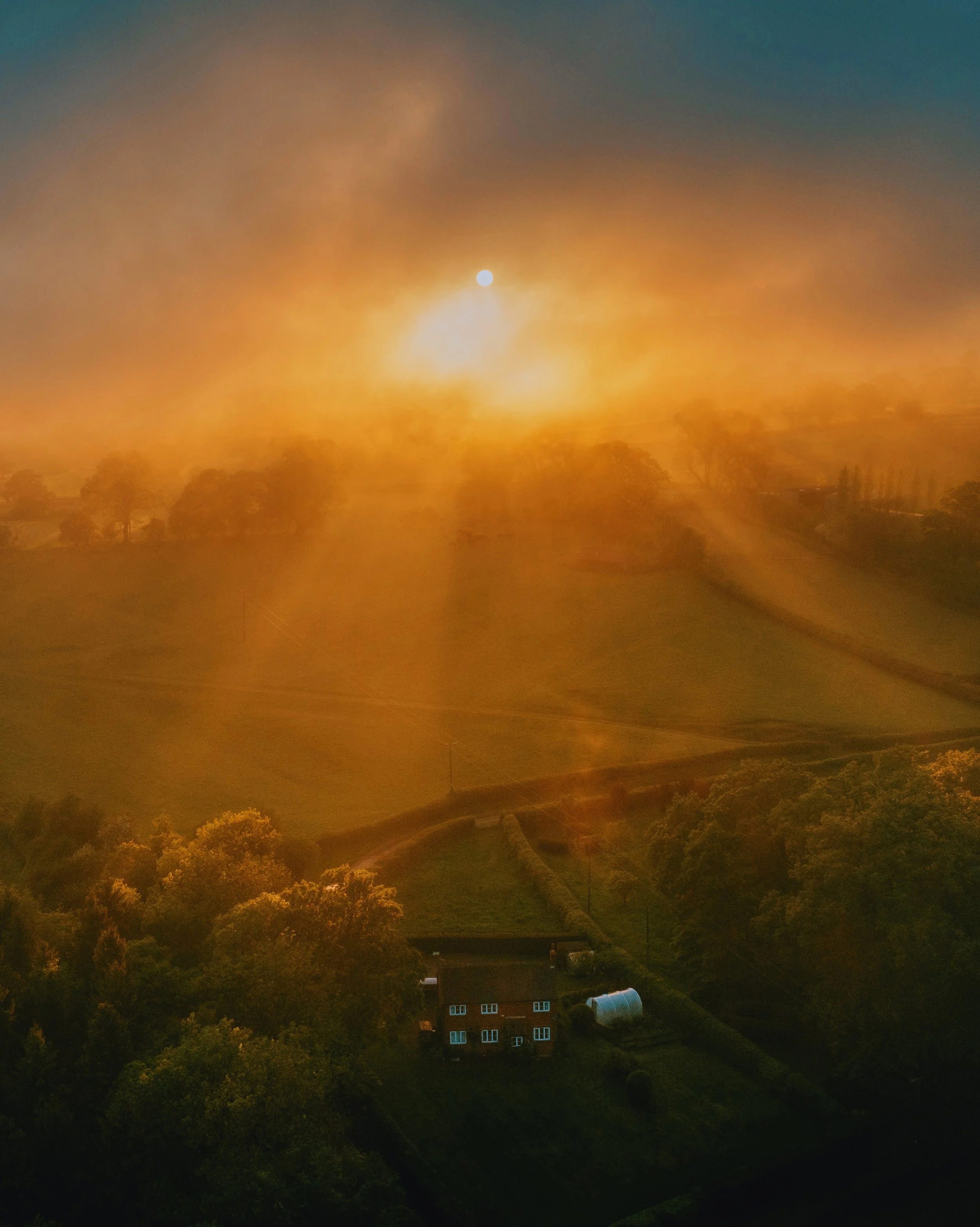Keyboards, Publication and Other Sacraments

Keyboards, Publication and Other Sacraments
Rebekah Flovin
As far back as I can remember, I’ve attended church. Spending my childhood and eventual adulthood sitting in different pews, I would invariably hear the familiar gods of the Old Testament brought out for illustration: Baal, Molech, Asherah.
"Do we still pray to the gods in the Old Testament?" The pastor would ask somewhat rhetorically. "No, we don't worship those idols; we don’t worship those old gods. What do we worship instead? Money, power, our careers…"
With these admonitions in the back of my head, years later, Neil Gaiman continued this train of thought in American Gods, “...there are new gods growing in America... gods of credit-card and freeway, of internet and of plastic and of beeper and of neon.” And yet, I must confess, I’ve never felt too inclined to worship gods of plastic, asphalt, or credit – I’ve always preferred ink and paper.
American Gods was written in 2001 and, unfortunately, but not unexpectedly, it has become anachronistic at points. Technical Boy, the god of technology, is originally described as an overweight young man with acne and a long leather jacket; I prefer the updated character played by Bruce Langley in the American Gods TV series. The 2017 version is skinny, almost underweight, dressed in colors that are bright as his perpetually curled upper lip is arrogant. In a pivotal moment, he sneers at the protagonist, Shadow Moon, claiming that “...language is a virus and that religion is an operating system and that prayers are just so much... spam.”
If prayers are spam, then I’ve been praying to an altogether different god than those illustrated by my pastor and even Gaiman. Instead, I’ve been taken in worship to the twin goddesses of Academia and Achievement for a long, long time. What is the act of typing on a keyboard—back curled, shoulders lowered—but just another form of kneeling?
Achievement and Academia are separate gods, the world tells me, but I’ve lived my life in the classroom for so long that I couldn’t begin to tell you where one ends and the other begins; to have one, you must have the other. They are lovely, tall, and elegant gods, with a touch of coolness and a hard beauty, because everything becomes more attractive the less attainable it is.
*
Up until I was twenty, I thought I would get a PhD because my father has one and I thought that’s what people did when they went to college. I would major in Zoology because I loved animals and I would complete my degree before I turned 30. A decade later, I am over 30 and have a Masters in English instead.
“Only a Masters?” tuts Achievement mockingly, “What a waste of your talent. Wouldn’t it be great to get your doctorate? To be surrounded by scholars and knowledge? To be found worthy?”
“I can make you worthy,” says Academia, her voice is melodic and haunting.
Worthy of what?
“Worthy,” she croons and I believe her.
*
During one semester of my undergrad, there were several nights I don’t remember going to bed. I was taking too many classes and wrestling with reverse culture shock after a semester abroad in China. I would stay up late writing, studying, trying to work, and then find myself waking up a few hours later in a sprawled position, study materials on my lap, the essay still not written, the book still not read, the vocabulary still not learned—still not done.
The first time I applied to graduate schools, I was rejected by almost all of the schools I had chosen. The one school that accepted me, I couldn’t afford. The second time I applied to graduate school, I got into both of them. When I hesitated, undecided between the two schools, they offered me more financial aid.
I was worthy.
I was accepted.
In graduate school, I was unlucky enough to read that getting less than an A in your class meant that you were, for all academic purposes, failing the course. You didn’t deserve to be in graduate school, you weren’t worthy to be there.
So I did what any acolyte does and prayed. I knelt at my keyboard and prayed to Academia with my tears and my emails and so so many essays. I held vigil in honor of being good enough, smart enough, in an attempt to prove to my peers that I was as much an acolyte as they were; proving to my professors that I was worthy of their knowledge; proving to the goddess Academia who told me that she alone had the way to enlightenment.
“You’re going to fail,” Academia whispered back as I struggled with writer’s block and trying to get the words in the right order. “You’re going to fail out of graduate school—won’t that be a waste of all your money and time!”
*
To this day, I have just barely enough experience with Derrida to pretend I’m cultured, but I have come to appreciate Donna Harraway’s cyborgs and I now have strong thoughts on the appropriate cultural context for reading Flannery O’Connor.
“Look,” says Achievement, gesturing to the cities below our mountain top. “This could all be yours: acclaim, respect, power. The people you fear will finally know who you are, they will finally care and court you.” She taps my nose thoughtfully. “Now if only you were worthy.”
“How do I become worthy?” I ask panting, tired from my climb, from my efforts so far on this journey. She points to a mountain behind her, so tall I can’t see the peak. “You must climb higher.”
*
In American Gods, the holy woman Atsula has a moment of awareness where she realizes, “Gods are great… But the heart is greater. For it is from our hearts that they come and to our hearts that they shall return.”
It is worth remembering that the heart is deceitful above all things.
When I walked across the stage to receive my Master’s degree, I felt a rush of pride and success. I did it. I succeeded. I won. I became a member of the select thirteen percent of Americans with a professional degree. My professors, whose approval I had been so hungry for (and truthfully never in danger of losing), embraced me with tight hugs and whispered personal affirmations. “I’m so proud of you. You did it. You did it.”
And then, as I took my seat, Academia whispered, “What’s next?”
In my other ear, Achievement crooned, “Higher.”
*
For someone who's listened to sermon after sermon about the Israelites offering sacrifices over and over again, I was hopelessly naive to believe that the goddesses would be appeased once I graduated.
"Have you written enough today?" Achievement whispered, "Are you marketing yourself enough? Are you making enough money? Are you sure?"
This is idolatry; I am well-read enough to identify this, but it is one thing to acknowledge the worship of these bloody, hungry gods and it is another thing to repent and stop burning sacrifices.
If I were more sanctified, more holy, better, I could tell you that the twin goddesses no longer call to me, even when I see my friends in PhD programs; that I have turned my gaze to the One True God, the Christ, the King with a Crown of Thorns and Burning Eyes.
But even within the sanctuary of church walls, I still have a hard time sorting out personal desire from pious devotion. I am prone to wander as the old hymn says, yes, but more than that, I am prone to rebuild, restructure idols and altars, again and again.
“Think of all the good you could do if you had an MDiv,” croons the familiar, melodic voice. “Think of how pious you would become.”
But the crooning never stops there.
“If you changed churches, you could even become a pastor. You could capitalize on your faith, become an award-winning writer. You could make millions.” The voice is hungry and haunting. “All this could be yours.” And again I am worshipping a god of my own creation.
*
In the 10th Anniversary edition of American Gods, Gaiman admits to the struggle of writing about Jesus in America, how he wanted desperately to include Jesus because, “He’s part of the warp and weft of the country.” Originally, Gaiman wrote a scene where Jesus tells Shadow Moon, “It’s hard to be what everyone else wants you to be”, but after much deliberation, he removed it from the main plot and hid it in an appendix at the end of the book. And isn’t that the crux of being American? Trying to sort out your creation, your invention of god from the real one?
There's a twisted pleasure in worshipping a god of your own creation; trusting in a god of your own heart. You have a sense of power and control over this god, even if it goes unacknowledged—this god is birthed from that which we covet , and we believe that it is under our control—that we can satiate this bloody, hungry, beast.
But you can't.
Like Frankenstein before us, we create gods in our own image. Yet, with our fallen hands, we cannot help but make even more broken things. We live under a curse of sin and, as such, we only know how to cure one curse with another.
In words more articulate than I will ever write, Dane Ortlund authored an extremely timely book called, Gentle and Lowly, that seems almost too mythical to believed. His book is structured around the end of Matthew 11:29, where Jesus instructs His followers, “Take my yoke upon you, and learn from me, for I am gentle and lowly in heart, and you will find rest for your souls.” Where is the hunger? Where is the blood? Where is the exacting pressure to be “perfect even as your Heavenly Father is perfect”?
“Did God really say that His grace alone was sufficient?” Achievement wonders. “Shouldn’t you be trying harder to repent and do better?”
“To you I say, do you know what Jesus does with those who squander His mercy?” Ortlund argues back, “He pours out more mercy. God is rich in mercy. That’s the whole point.” In my fear and hypocrisy, I tremble in disbelief. It seems like a Sunday School answer to be repeated for the validation of having memorized the right verses.
But what if it’s true?
“Belief without blood only takes us so far. The blood must flow,” Odin argues in American Gods. Perhaps the perplexing, terrifying beauty is that we cannot bleed ourselves for our belief; human blood will not be a good or worthy enough sacrifice. We will never be enough, but holy blood has counted us worthy.
Rebekah Flovin
Writer & MA Graduate
Photography by Teresa Freitas




